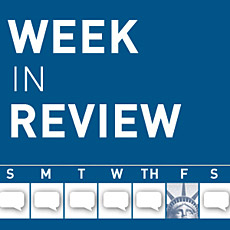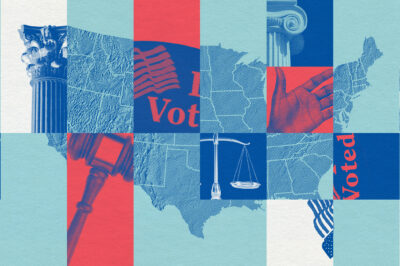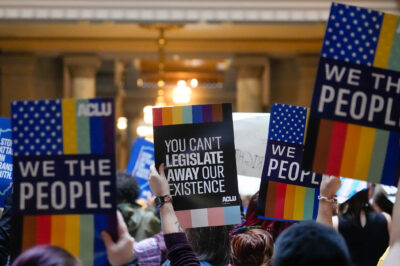
What were the consequences of prosecutorial misconduct for the district attorney’s office that hid evidence to send John Thompson to death row?
Who produced a short music video on photographers’ First Amendment rights?
This Valentine’s Day HBO will show a documentary on which couple who challenged Virginia’s interracial marriage ban?
Congress is attempting to pressure which agency to allow more aerial surveillance of Americans?
Which state is trying to suppress voting by pushing a law through the state legislature that will restrict voter registration drives?
If a Lawyer Stole $5 From a Client…
“If a lawyer stole $5 from a client, he would probably be prosecuted and might even go to jail — but that prosecutor stole 18 years of my life and what happened to him? Nothing.“
This from John Thompson this week in New York, as he kicked off a multi-state speaking series on prosecutorial misconduct in the criminal justice system. Lack of prosecutorial oversight is a real and persistent problem in our nation’s justice system, and the consequences are dire. Thompson, for instance, was almost executed for a crime he did not commit. The speaking tour that began this week is designed to educate the public about prosecutorial oversight and to engage prosecutors and other legal experts in collaborative strategizing about how to respond to this sort of extreme misconduct on the part of government lawyers.
Joseph Gordon-Levitt and The Gregory Brothers Team Up With the ACLU on Photographers’ Rights
A couple of weeks ago at the Sundance Film Festival, the open-collaborative production company hitRECord released a short animated music video on photographers’ First Amendment rights, in collaboration with the ACLU of Florida, The Gregory Brothers (best known for Auto-Tune the News), HitRecord director Joseph Gordon-Levitt and artists from around the world. While the video is fun, the message is serious. Taking photos in public of public actions — especially those of the police — is a protected right.
The Lovings: A Couple That Changed History
Mildred and Richard Loving never set out to have their marriage become the subject of one of the most famous civil rights cases of the last century. But it was their deep affection for one another and sheer determination that led them to the Supreme Court, where the ACLU represented them in a landmark case that struck down state bans on interracial marriage.
Now, this saga of a 17-year-old Black woman who wanted nothing else than to marry her white 23-year-old childhood sweetheart will be recounted in The Loving Story, a documentary that will be shown, appropriately, on Valentine’s Day, at 9 p.m. ET.
Congress Trying to Fast-Track Domestic Drone Use, Sideline Privacy
Congress is poised to give final passage to legislation that would give a big boost to domestic unmanned aerial surveillance — aka “drones.” Domestic deployment of unmanned aircraft for surveillance purposes has largely been blocked so far by the Federal Aviation Administration (FAA), which is rightly concerned about the safety effects of filling our skies with flying robots (which crash significantly more often than manned aircraft).The FAA is under pressure to loosen the reins and permit broader deployment of drones by government agencies. Unfortunately, nothing in the bill would address the very serious privacy issues raised by drone aircraft. This bill would push the nation willy-nilly toward an era of aerial surveillance without any steps to protect the traditional privacy that Americans have always enjoyed and expected.
Under the Radar: South Carolina Rushes Through Yet another Voter Suppression Bill
The South Carolina legislature is rushing through a law that would severely restrict community-based voter registration drives. House Bill 4549, modeled after a Florida law that forced the League of Women Voters and other civic organizations to abandon voter registration efforts in the state, would effectively shut down community-based voter registration drives in South Carolina, requiring any individual or organization to register with the state before assisting other South Carolinians in registering to vote, and subjecting those individuals or organizations to up to $1,000 in fines, even for honest mistakes like sending the forms to the wrong county or not putting enough postage on the envelopes.
This is your week in civil liberties. Let us know if this is useful or if you’d like to see changes. Share your thoughts: ideas@aclu.org
Learn more about your rights: Sign up for breaking news alerts, follow us on Twitter, and like us on Facebook.



